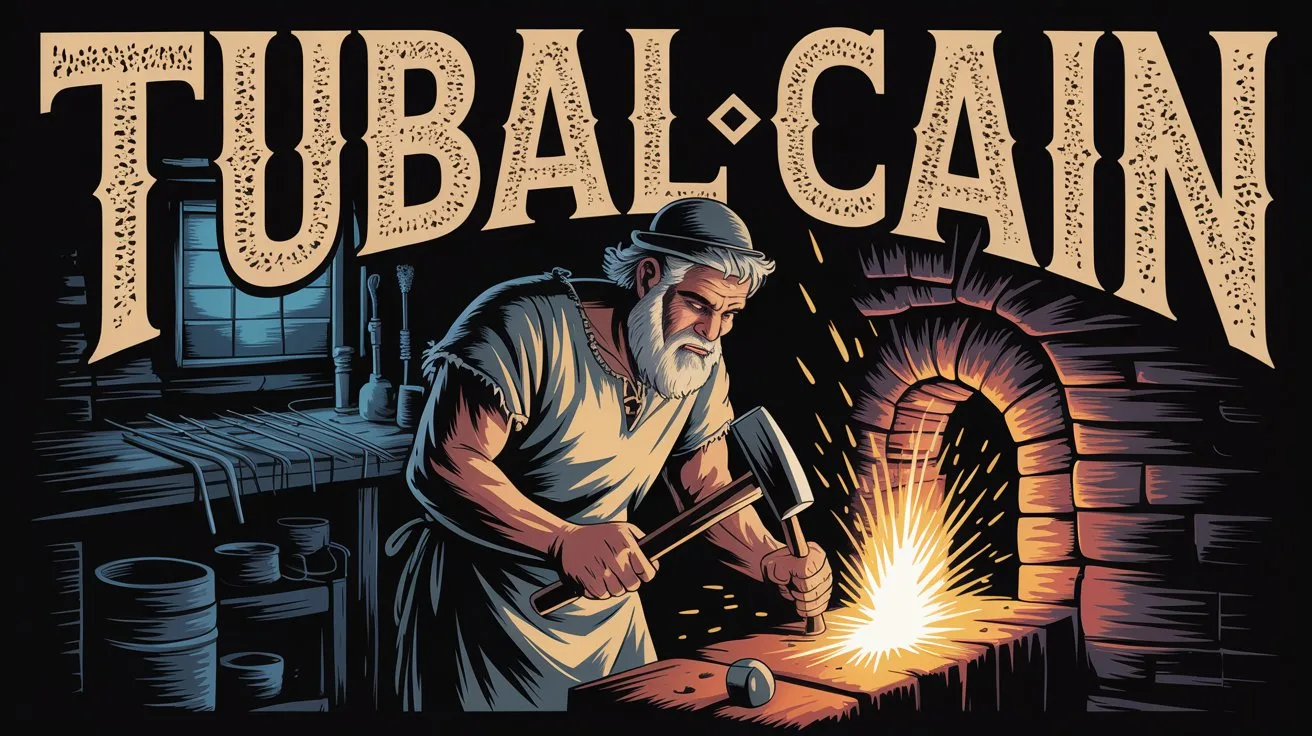Tubal‑Cain was the Bible’s first blacksmith, forging with bronze and iron before the Flood. Paired with Jubal’s musical inventions, their stories challenge the evolutionary timeline by showing artistry and technology flourishing from the dawn of humanity.
Tubal‑Cain’s Place in the Genealogy
“And Zillah, she also bore Tubal‑Cain, an instructor of every craftsman in bronze and iron” (Genesis 4:22).
Here the Hebrew literally reads, “forger of all instruments of bronze and iron.” Tubal‑Cain is not merely a craftsman; he is the originator, the smiths learned from him. The 18th-century Baptist theologian John Gill notes in his commentary that the name Tubal‑Cain was remembered in pagan mythology through Vulcan, the Roman god of fire and metalwork, showing how early post-Flood cultures corrupted yet preserved a memory of this antediluvian figure (Gill, *Exposition of the Old Testament*, Genesis 4:22).
Jubal and the Origin of Music
Sitting just before Tubal‑Cain’s mention, we read: “And his brother’s name was Jubal; he was the father of all those who play the harp and flute” (Genesis 4:21). Jubal is called father, the initiator, of instrumental music. He invented both stringed (harp/lyre) and wind (flute/pipes) instruments, demons/”>demonstrating complex artistry before the Flood.
“Father of all those who play the harp and flute” (Genesis 4:21).
Technology and Creativity in the Antediluvian World
Genesis intentionally highlights rapid human advancement: Jabal develops herding and tents, Jubal pioneers music, and Tubal‑Cain forges metal tools (all within just a few generations). This appears to be a rapid cultural progression, not a slow evolutionary development. God created the earth with mineral-rich soils (see Deuteronomy 8:9, Job 28:2), allowing Adam’s descendants to craft metal instruments immediately. The Bible’s genealogical structure places Tubal‑Cain and Jubal, before the Flood, directly contradicting the secular “Stone, Bronze, Iron” age model.
Why This Matters Against Evolutionary Timelines
Evolutionists assert metallurgy emerged around 1500 BC, yet Genesis situates these technologies thousands of years earlier. Answers in Genesis states, “iron‑working actually predates the flood since Tubal‑Cain forged iron,” and secular archaeology has even uncovered copper and iron smelting work dating to the 5th millennium BC, confirming Scripture’s timeline.
Broader Biblical Evidence of Early Metalwork and Music
The Bible never suggests humanity started in a primitive Stone Age. From Moses to David to the Psalms, metal and music are constant:
Exodus 25–28 details metalworking for the Tabernacle;
1 Samuel 16:23 echoes Jubal in David’s music;
Psalm 150 lists numerous instruments, from harps to cymbals. These instruments originated in Genesis.
My Final Thoughts
Tubal‑Cain and Jubal reveal a pre-Flood world rich in technology and music. Genesis doesn’t present primitive ruins; it shows purposeful creativity and craftsmanship from the beginning. These biblical accounts challenge the evolutionary narrative of slow technological development. Instead, they point to a humanity created in God’s image: creative, skilled, and capable from day one.
When someone says “Iron Age started in 1500 BC,” ask them: “Which Iron Age? Because, Genesis 4 says it began before the Flood.”





 Get the book that teaches you how to evangelize and disarm doctrines from every single major cult group today.
Get the book that teaches you how to evangelize and disarm doctrines from every single major cult group today.